We all love our furry friends, no doubt about it. But sometimes, in our quest to be the best pet parents, we may inadvertently be projecting our own emotional baggage onto them. If you’ve ever wondered whether your own feelings of abandonment are affecting your relationship with your dog, this list might help clarify things. Remember, it’s all about finding balance and ensuring both you and your pup are living your best lives. Let’s dive into the signs that might indicate you’re projecting those abandonment issues onto your dog.
1. You Feel Overwhelming Guilt Leaving Them Alone
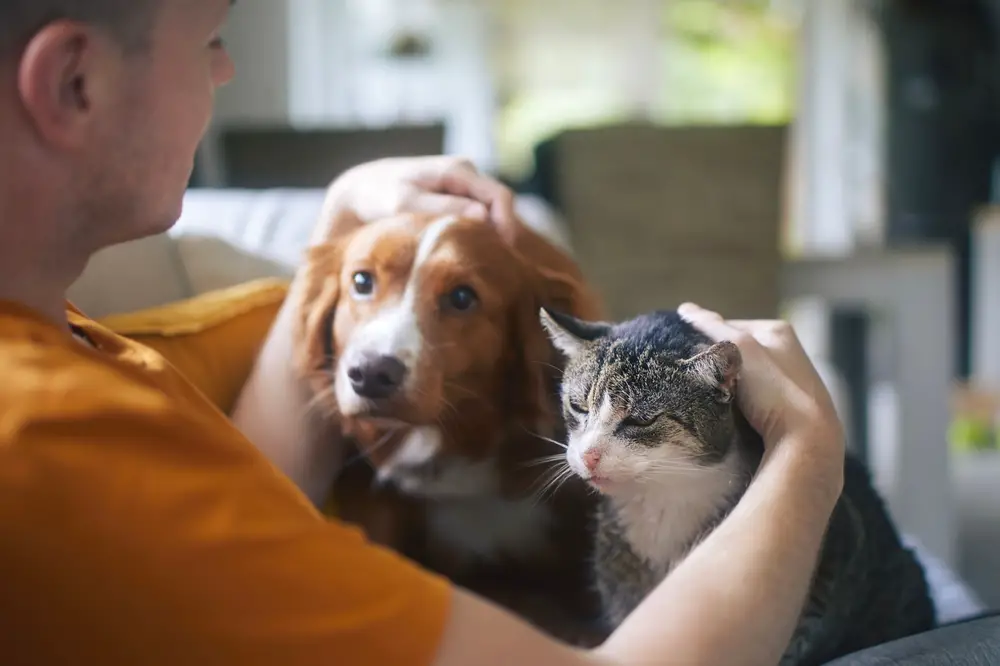
Leaving your dog alone while you head out to work or run errands fills you with immense guilt. You picture them staring at the door, waiting for your return, and it breaks your heart to think they might feel abandoned. According to Dr. Alexandra Horowitz, a canine cognition expert, dogs actually have different perceptions of time compared to humans and often cope better with alone time than we assume. So, while your intentions are good, your own anxieties about separation may be coloring the experience more than your pup’s actual needs. It’s important to recognize when these feelings are more about your past experiences than your dog’s current reality.
To combat this guilt, you might find yourself overcompensating in other areas, like showering them with toys or extra treats. You hope these gestures make up for the time apart, but it’s worth considering if your dog really requires such constant doting. Try to recognize the difference between fulfilling their needs and addressing your own unresolved emotions. It might be helpful to find ways to manage this guilt, such as setting up a comfortable space for your dog or arranging for a dog walker. Remember, your dog’s contentment when you’re gone is often more about the routines and reassurances you establish than anything else.
2. You Apologize To Them…A Lot

Every time you accidentally step on a paw or have to leave them at home, you find yourself offering profuse apologies to your dog. While it’s natural to feel bad when your furry friend is uncomfortable, excessive apologizing might be more about soothing your own conscience than anything else. Dogs primarily respond to tone and body language rather than spoken words, so a calm and reassuring demeanor is usually more beneficial than verbal apologies. When you make an apology a regular part of your interactions, it might be worth questioning who you’re really trying to comfort: your dog or yourself.
This constant need to apologize can create an environment where your dog becomes overly sensitive to your tone and mood changes. They might start associating certain cues with negative experiences, even if those cues are unintentional. Instead of over-apologizing, focus on creating a positive and stable environment for your dog. When a mistake happens, calmly redirect your energy into reassuring your pup through affectionate gestures or play. This approach not only benefits your dog but also helps you break the cycle of projecting your insecurities onto them.
3. You Worry More About Their Feelings Than Your Own
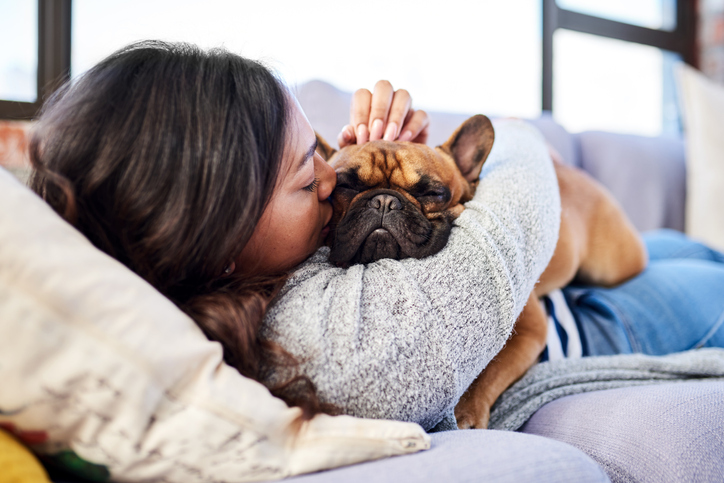
Your dog’s emotional state is constantly on your mind, often overshadowing your own feelings and needs. You invest significant time and energy into ensuring they’re happy and comfortable, sometimes at the expense of your own well-being. A study published in the journal Anthrozoös suggests that while dogs do experience emotions, they primarily thrive on routine and structure. This means that your dedicated caretaking might be more about assuaging your own feelings of insecurity than meeting their actual needs. Consider whether your focus on their emotions is helping or hindering your ability to care for yourself effectively.
This can lead to a cycle where your own needs are neglected, potentially causing increased stress or burnout. When your emotional energy is depleted, it may affect your ability to be present and engaged with your dog. Try to find a balance where both you and your dog are getting the attention and care you deserve. Implementing self-care practices and setting boundaries can help ensure that your relationship is healthy and balanced. Your dog benefits from having a happy, well-adjusted owner just as much as you benefit from having a happy, content pup.
4. You Read Into Their Every Move
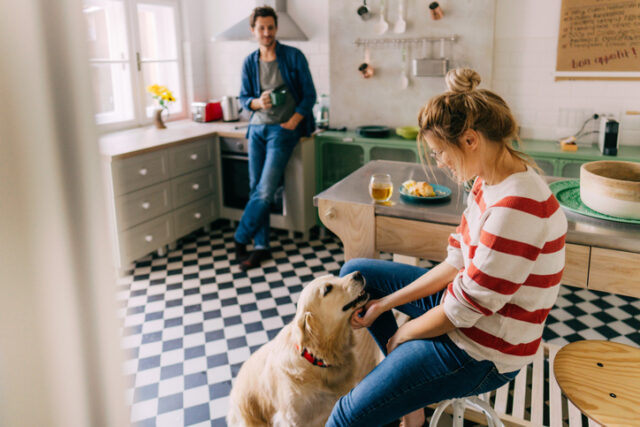
Every bark, wag, or sigh from your dog sends you into analysis mode, trying to decipher their exact emotional state. You might believe that every action has a hidden meaning or emotional message directed at you. While it’s true that dogs do communicate through body language, reading too much into their every move could be more reflective of your own anxieties. Dogs are often straightforward in their expressions, focusing on basic needs and immediate reactions rather than complex emotional cues. It’s easy to misinterpret this simplicity as something deeper, especially if you’re dealing with abandonment issues.
By interpreting every move as a sign of discontent or desire, you might end up reinforcing behaviors that aren’t beneficial for either of you. Your dog might become confused by your reactions, unsure why their behavior elicits such intense responses. Instead, aim to understand their basic needs and establish a routine that supports both their physical and emotional health. Learning to interpret their cues accurately, without layering on your own emotional weight, can strengthen your relationship. This understanding fosters a healthier dynamic where both you and your dog can thrive.
5. You Over-Schedule Their Social Life
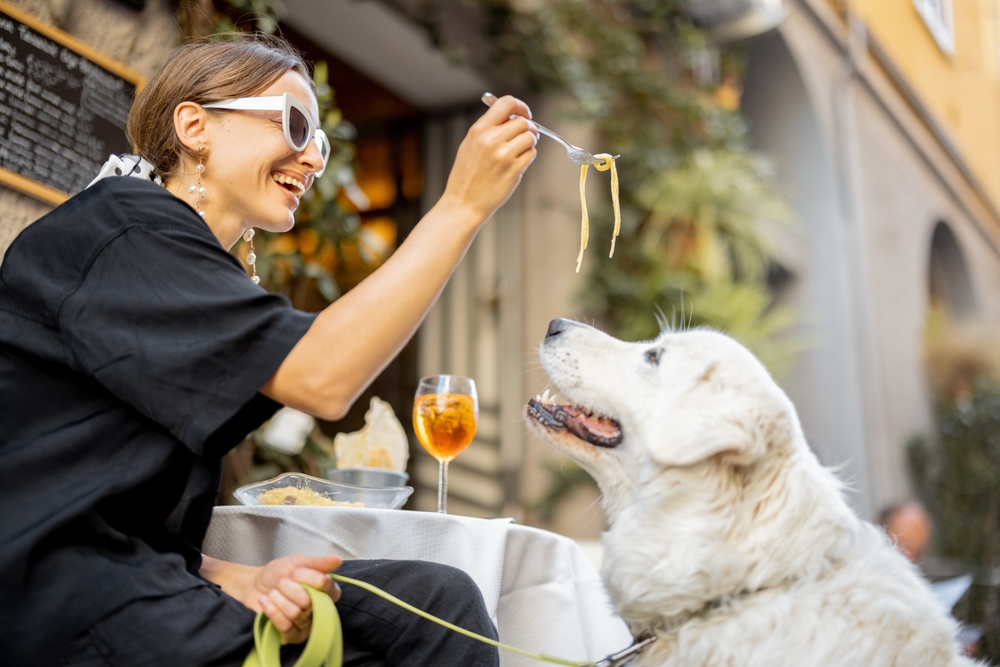
In an effort to ensure your dog never experiences loneliness, you might find yourself over-scheduling playdates, dog park visits, and social outings. You believe that keeping them constantly engaged helps stave off any feelings of abandonment they might have. According to Dr. Rachel Barrack, a veterinarian and animal acupuncturist, dogs do benefit from social interactions, but like humans, they also need downtime to recharge. Over-scheduling can lead to stress and anxiety, as your dog lacks the chance to fully relax and enjoy quiet time. Finding a balance between stimulation and rest is key to maintaining your dog’s well-being.
This tendency to overschedule can also be a reflection of your own fear of abandonment, as you may unconsciously equate constant activity with security and love. It’s important to remember that quality time with your dog doesn’t always have to be about keeping them busy. Sometimes, the most meaningful moments are those spent simply being together, whether it’s a quiet evening on the couch or a leisurely walk. By allowing yourself and your dog to enjoy these quieter moments, you create a more balanced and fulfilling relationship. Understanding that downtime is essential for both of you helps in nurturing a healthier bond.
6. You Feel Jealous When They Bond With Others
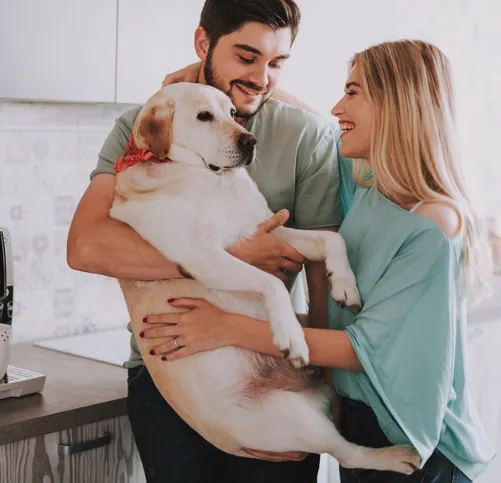
If your dog shows affection towards other people, you might find yourself feeling a pang of jealousy. Watching them snuggle up to a friend or family member can sometimes trigger worries that you’re not providing enough love or that they’d rather be with someone else. While it’s natural to want to be your dog’s favorite person, this jealousy might be more about your own insecurities than your dog’s preferences. Dogs are social creatures who can form bonds with multiple people, and their affection for others doesn’t diminish their bond with you. Recognizing that their social nature is not a reflection of your shortcomings can alleviate this jealousy.
This feeling of jealousy can lead to unintentional behaviors that may confuse your dog, such as being overly protective or possessive. These behaviors can create a stressful environment, hindering your dog’s ability to form healthy social bonds. Instead of viewing their affection for others as a threat, celebrate the fact that your dog is capable of extending love and building relationships. This perspective helps you focus on cultivating a trusting and supportive connection with your dog. Embrace the idea that your unique bond is irreplaceable, and others can only add to your dog’s happiness.
7. You Project Feelings Of Hurt Onto Them

When your dog seems uninterested or aloof, you might worry that you’ve done something to upset them. You internalize their behavior, assuming it’s a reflection of your actions or bond. However, as psychologist Stanley Coren notes, dogs’ moods can fluctuate due to numerous factors unrelated to your relationship, like changes in weather or energy levels. When you project feelings of hurt onto them, it can create a cycle where you’re constantly second-guessing your actions and questioning your dog’s loyalty. Understanding that their behavior often has more to do with their immediate needs rather than deeper emotional rifts can help alleviate this worry.
This projection can lead to a heightened sense of anxiety and stress for both you and your dog. If you’re constantly seeking validation from your pet, it can affect your ability to provide a stable, nurturing environment. Focus on observing your dog’s overall well-being and consistency rather than isolated behaviors. Creating a stable and comforting routine helps both you and your dog feel secure, minimizing the need for constant reassurance. In doing so, you’ll foster a more trusting and relaxed relationship where both parties feel valued and understood.
8. You Overreact To Small Changes In Their Behavior
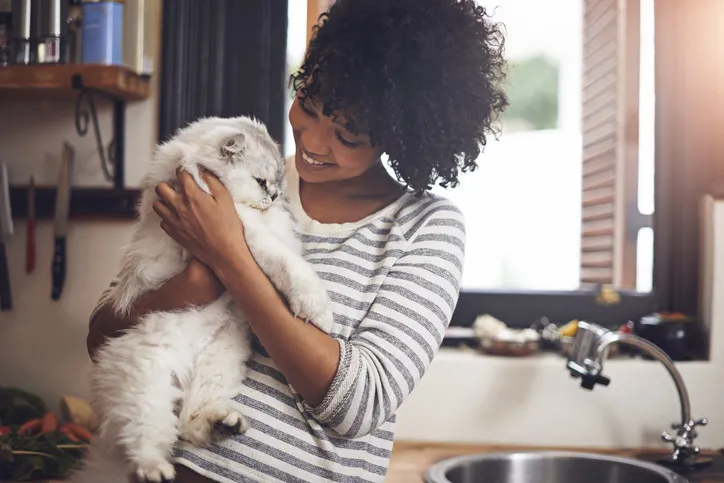
A minor change in your dog’s routine or behavior might send you into a panic. You immediately fear the worst, convinced it indicates a deeper issue or unhappiness. Reacting strongly to these changes can stem from your own feelings of instability, projecting them onto your dog’s relatively simple life. It’s crucial to remember that dogs, like people, can have off days that aren’t indicative of a larger problem. A calm and observant approach is often more beneficial in understanding your dog’s needs.
When you overreact, your dog may pick up on your stress and anxiety, which can exacerbate the situation. They may become confused, unsure of why their behavior is causing such a strong response. Instead of reacting impulsively, take note of any changes and monitor them calmly. Give it time to see if the behavior persists or if it was just a temporary shift. By maintaining perspective, you allow both yourself and your dog to navigate these changes more effectively, fostering a sense of stability and trust.
9. You Avoid Leaving Them With Others
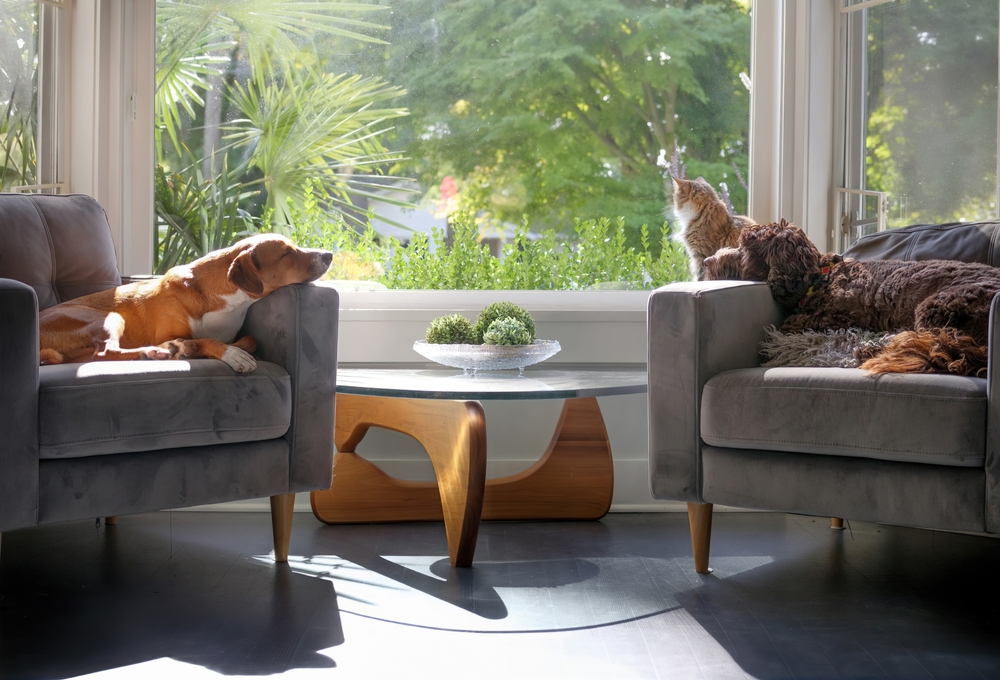
The idea of leaving your dog with someone else, even for a short time, makes you uncomfortable. You worry that nobody can care for them as well as you do, fearing they’ll experience feelings of abandonment in your absence. This reluctance can be more about your own fears of being replaced or forgotten than your dog’s actual experience. Dogs can adapt well to different caregivers, and exposure to new environments can be beneficial for their social and emotional development. Allowing others to care for your dog can expand their social circle and provide enriching experiences.
By avoiding leaving them with others, you may unintentionally limit their ability to build confidence and resilience. This overprotectiveness might stem from your own abandonment issues, creating a barrier for both you and your dog. Trust in your chosen caregivers and focus on your dog’s adaptability and natural curiosity. By giving them the chance to explore relationships with others, you foster a well-rounded and confident pet. Recognize that these experiences are not a threat to your relationship but rather an opportunity for growth and enrichment.
10. You Constantly Seek Their Affection
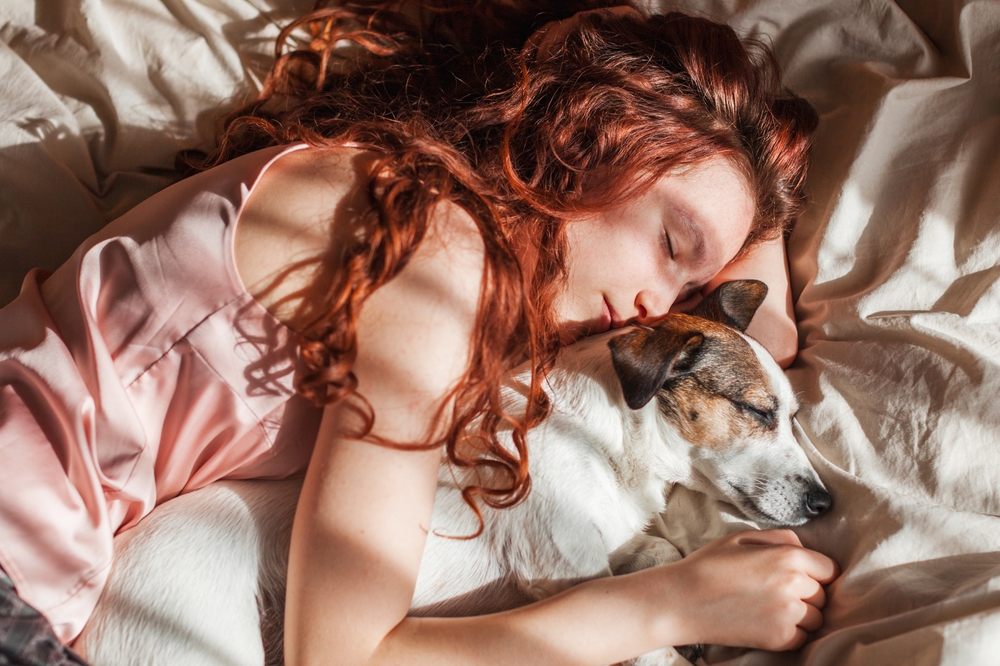
You frequently find yourself seeking out your dog’s affection, sometimes feeling as though you need their approval to validate your worth. While it’s natural to enjoy cuddles and companionship, this behavior might suggest underlying issues when it becomes a constant need. Dogs offer unconditional love, which can be comforting, but relying on their affection to fill emotional voids can strain your bond. It’s important to appreciate your dog’s companionship without turning it into a measurement of self-worth. Establishing self-confidence and independence can help create a healthier dynamic.
Constantly seeking affection might inadvertently pressure your dog, causing them to become wary or anxious. Dogs thrive on balanced interactions; too much focus on their attention can alter your relationship dynamics. Aim to find fulfillment in other areas of your life to avoid leaning too heavily on your dog for emotional support. Diversifying your support system enables both you and your dog to enjoy a more fulfilling, stress-free relationship. By finding balance, you cultivate a partnership based on mutual respect and enjoyment.
11. You Keep Them By Your Side At All Times
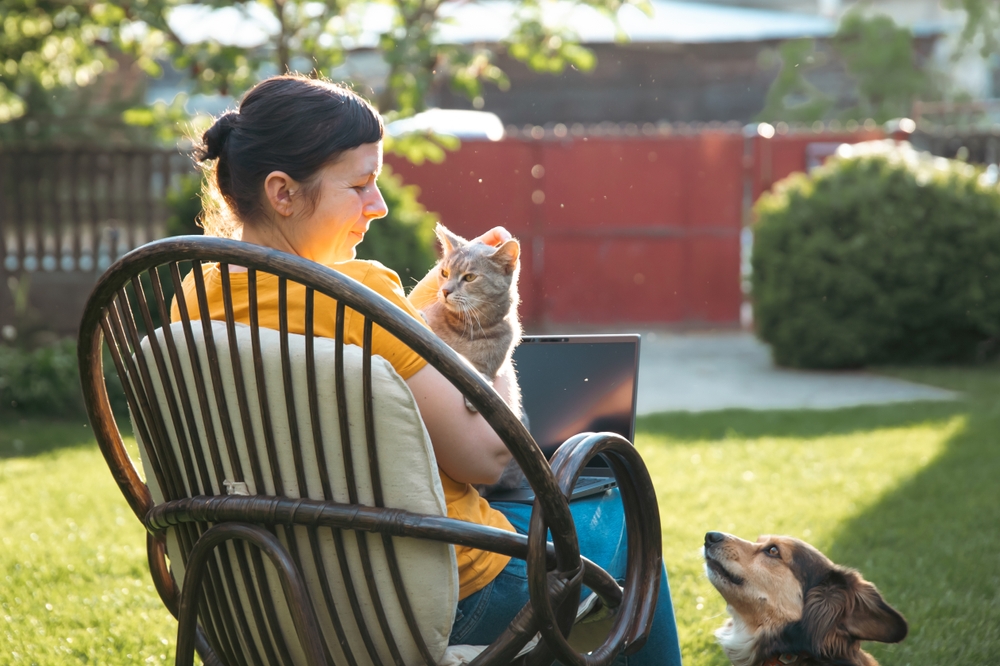
You might feel uneasy when your dog isn’t within your sight or at your side, leading you to keep them constantly nearby. This instinct to maintain proximity can stem from a fear of losing connection or being left behind. While dogs appreciate spending time with their owners, they also benefit from independence and exploration. Encouraging your dog to enjoy their own space occasionally fosters confidence and contentment. Understanding that a healthy relationship involves both togetherness and individual freedom can enhance your bond.
When you’re always together, your dog may become overly dependent, which can hinder their ability to cope with new environments or situations. This dependency might create a cycle of anxiety and stress for both you and your pet. Encourage your dog to explore their environment independently and engage in activities without your constant presence. Building this sense of independence allows your dog to grow emotionally and adapt to various situations. By fostering a balanced environment, you create a secure space where both you and your dog can thrive.
12. You Feel Anxious When They’re Not With You

When your dog is out of sight, you might experience anxiety or a sense of loss. Your mind races with worst-case scenarios, fearing they’re unhappy or unsafe without your presence. This anxiety often stems from personal feelings of insecurity or fear of abandonment, rather than your dog’s actual circumstances. Dogs are generally resilient and capable of handling periods of separation without distress. Learning to manage your anxiety through healthy coping mechanisms can benefit your well-being and your relationship with your dog.
Your anxiety can inadvertently affect your dog, as they may pick up on your stress, leading to increased tension for both of you. Instead of relying solely on your own emotions as a gauge, focus on building trust and confidence in your dog’s abilities. Establish clear routines and positive experiences that reassure both you and your dog during times apart. Building this trust helps alleviate anxiety, creating a more harmonious relationship. By addressing your fears, you create a supportive environment where separation is seen as a normal, manageable part of life.
13. You Struggle To Set Boundaries
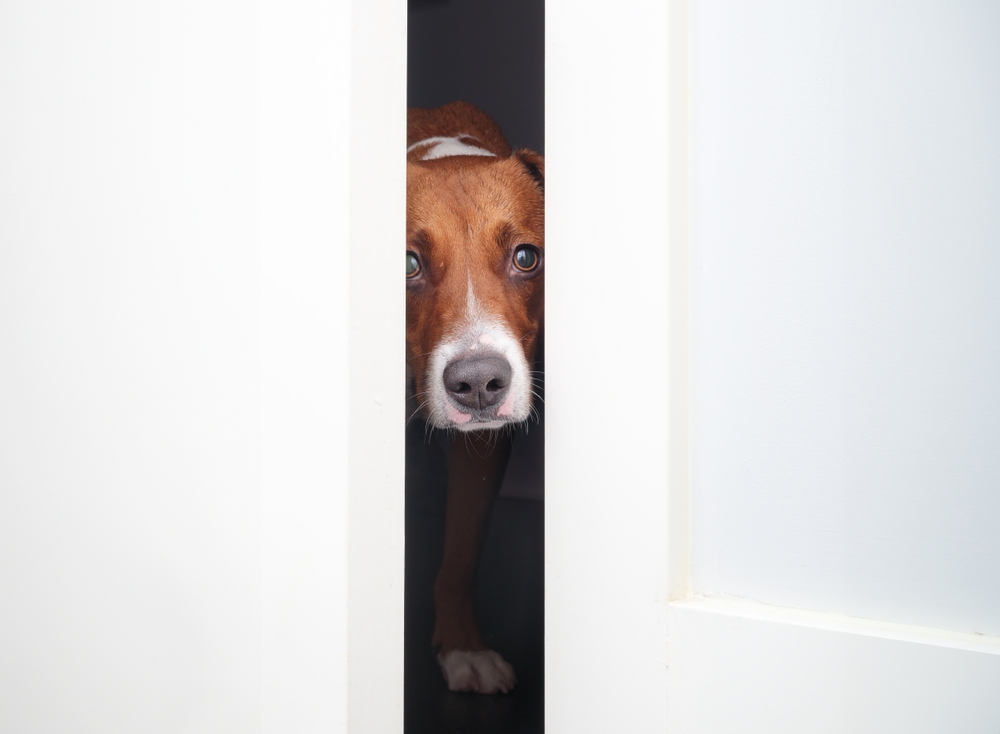
Setting boundaries with your dog feels challenging, as you worry it might harm your relationship or make them feel unloved. You may avoid enforcing rules or discipline, fearing it will create distance between you and your pet. However, boundaries are essential for a healthy and balanced relationship, providing structure and security for your dog. Dogs thrive on routine and clear expectations, which help them understand their environment and interactions. Learning to set and maintain boundaries can strengthen your relationship, promoting mutual respect and understanding.
The struggle to set boundaries might stem from a desire to compensate for past experiences of neglect or abandonment. By continuously bending the rules, you might inadvertently create confusion and instability for your dog. Implementing consistent guidelines and reinforcing positive behavior helps your dog feel secure and valued. Reflect on your own experiences and recognize that establishing boundaries benefits both you and your dog. By fostering a structured environment, you cultivate a relationship based on trust, respect, and mutual growth.
14. You Feel Responsible For Their Every Emotion
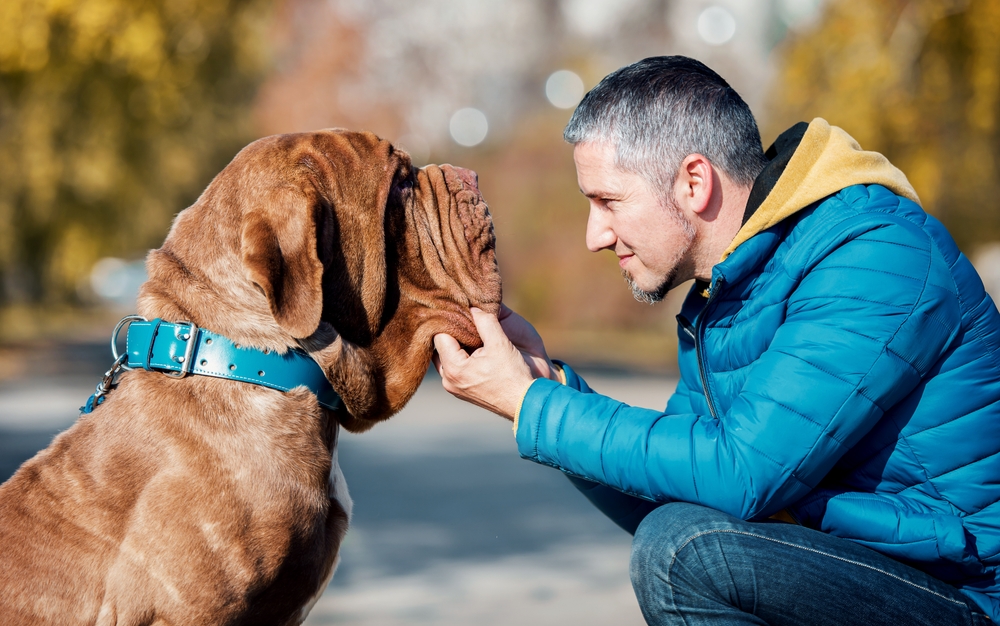
You might find yourself feeling responsible for your dog’s every emotional state, believing it’s your duty to keep them perpetually happy. This sense of responsibility can be overwhelming, as you continuously strive to meet perceived emotional needs. While caring for your dog’s well-being is crucial, it’s important to remember that dogs experience a range of emotions based on various factors. Accepting that you’re not solely responsible for their happiness allows both you and your dog to experience emotions naturally. This understanding fosters a more balanced and realistic perspective of your role in their life.
Feeling overly responsible can lead to stress and anxiety, affecting your ability to enjoy your relationship with your dog fully. It might also create a dynamic where your dog becomes overly sensitive to your emotional cues, rather than developing their natural responses. Focus on providing a stable and nurturing environment that supports your dog’s physical and emotional needs. By recognizing that emotional ups and downs are a normal part of life, you alleviate the pressure to constantly manage their feelings. This approach promotes a healthier, more authentic connection between you and your dog.
15. You Confuse Training With Control
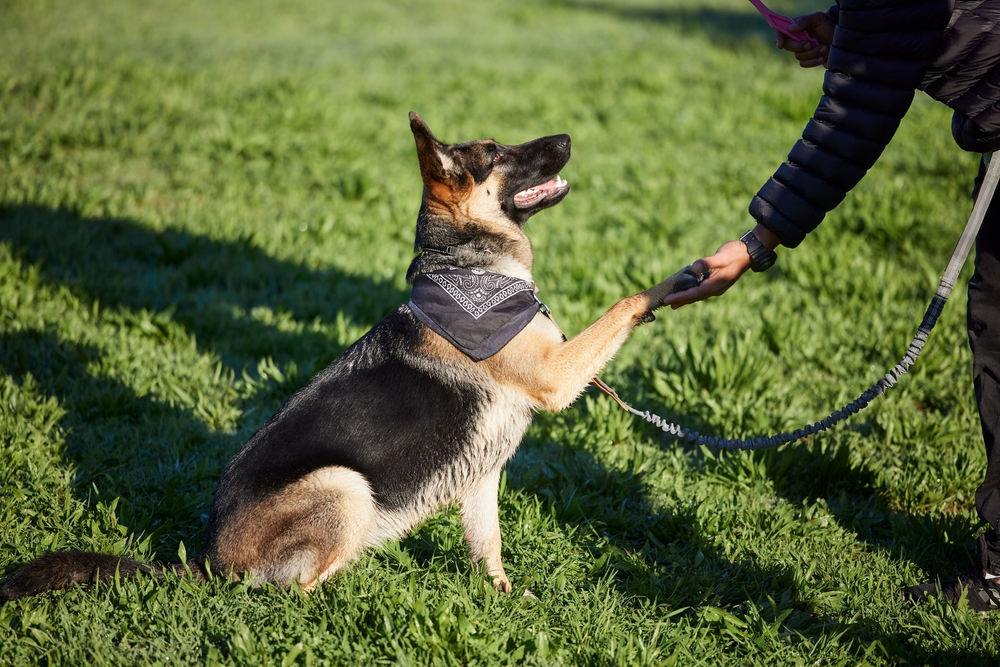
In your quest to ensure your dog feels secure and loved, you might conflate training with controlling their every move. You might enforce strict adherence to commands, fearing that any deviation signals a lack of connection or obedience. While training is an essential part of responsible pet ownership, it should focus on understanding and communication rather than rigid control. Dogs benefit from guidance that encourages learning and growth, rather than strict oversight. Recognizing the difference between training and control can help you foster a more trusting and respectful relationship.
This confusion might stem from your own experiences of control or manipulation in past relationships, leading to an imbalanced dynamic with your dog. Overemphasis on control can hinder your dog’s ability to explore and express their natural behaviors. Focus on positive reinforcement and patience, encouraging your dog to learn at their own pace. By embracing a more flexible approach, you create an environment where your dog feels safe to explore and engage. This fosters a relationship built on mutual trust and understanding, enhancing the bond you share.
